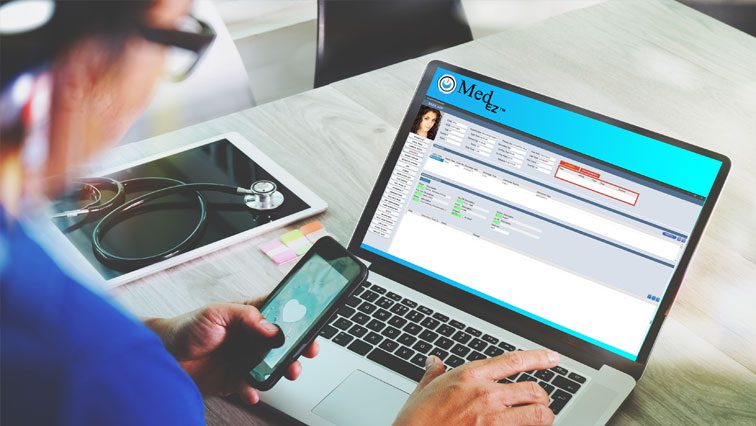America’s opioid crisis has been growing steadily for years, despite rising alarms about its impact on affected communities. However, emerging trends in electronic health record technologies for behavioral health and substance abuse care providers now provide the technical tools needed to address opioid addiction on the frontline, right in the medical clinic that makes the diagnosis. From intake to discharge, behavioral health-focused EHRs enhance the medical professional’s capacities by expanding their patient data portfolio to include intricate details that are not readily apparent through traditional practices like interviews or observations.
The Impact of Opioid Addiction on Society
Doctors and patients favor opioids because of their pain-reducing capacity. However, because these medications are also highly addictive, patients may continue to use them long after their pain has passed. When their legal prescriptions run out, many patients turn to illegal street drugs to feed their now-established addictions.
The U.S. Department of Health and Human Services reports that in 2014, the number of opioid-related deaths exceeded that of any previous year, quadrupling in size over the number of such deaths in 1999. The 2014 data reveals that on any given day, medical professionals write more than 650,000 opioid prescriptions and more than 3,900 people start taking opioids for nonmedical reasons. On average, 78 people die each day from opioid addiction. Consequently, the agency estimates that the economic impact of the epidemic is as much as $55 billion per year, $20 billion of which goes to emergency room and inpatient care for people who have overdosed on opioids.
Impact on Medical Practices
Perhaps the biggest challenge that opioids pose for medical professionals is the number of patients asking for drug treatment for severe or chronic pain. Industry analysts estimate that each year, up to 116 million adults go to their doctors for pain relief, and often, opioids are the medications best suited to address those levels of discomfort. The challenge for physicians is how to balance pain control while limiting the potential for eventual addiction. The rising death toll has heightened the level of urgency for clinicians to address and overcome this challenge as quickly as possible.
How EHRs Can Help
One approach to slowing the opioid crisis that is receiving encouragement is the comprehensive engagement of EHRs in managing pain and pain relief controls. The behavioral health EHR gathers relevant patient data into a single, multifaceted file, where it informs medical professionals about the specifics of a patient’s health history, including medication history. Software analytics can then analyze patient activities, health history, and prescription history for signs that indicate a potential problem, alerting the therapist that the issue should be addressed.
For the opioid-addicted patient, EHR software offers several levels of oversight.
- Patient data can be used to ensure an accurate diagnosis of addiction. The software can access multiple layers of “Big Data” that are not available or are too voluminous for human review. The extensive search can find details that might reflect addictive behaviors, such as frequent prescription refills or the use of multiple pharmacies. With an accurate diagnosis and a comprehensive records database supporting it, the doctor can develop and document a treatment plan specifically for the affected addiction sufferer.
- EHRs can also track those treatment plans in more detail than can medical personnel. Automated notices for follow-up services keep clinicians and their patients on track to accomplish treatment goals.
At MedEZ, our sophisticated EHR software is designed to help our clinical clients diagnose and treat their opioid-affected patients. We designed our programming specifically to help today’s medical community identify the signs of addiction as quickly and efficiently as possible. Our mobile Behavioral Health app easily travels throughout the clinic to keep doctors and support staff fully informed about every patient they see. All MedEZ technology is completely HIPAA-compliant and secure, with industry-standard safeguards and processes.



